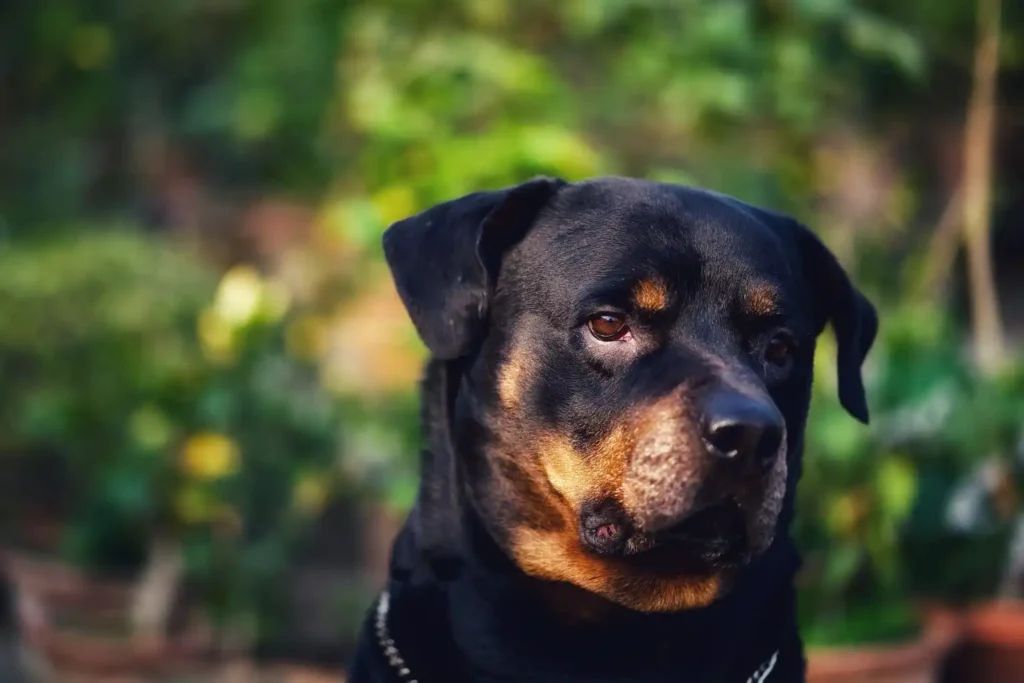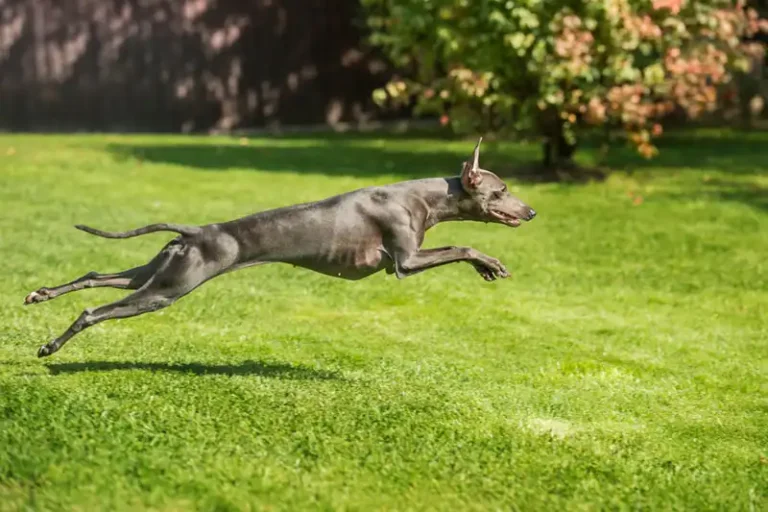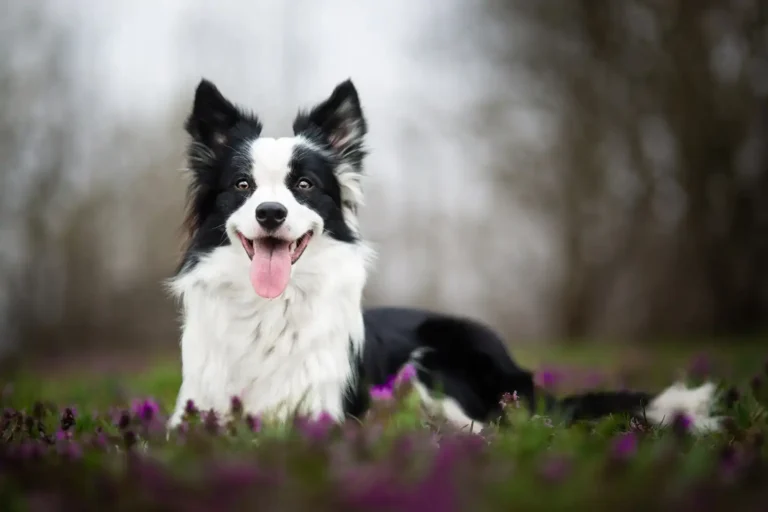The Rottweiler A strong protector with a heart
The Rottweiler is a powerful, confident, and intelligent dog that has been valued for centuries as a reliable guard and working dog. Despite his imposing stature, he is a loyal companion who forms a close bond with his family. With proper training, he is obedient, loyal, and friendly—a true protector with a heart.

PROFILE
Size : 56–68 cm
Weight : 35–60 kg
Life expectancy : 8–10 years
Character : Confident, loyal, intelligent, alert
Origin : Germany
Alternative names : Rotti
Special features : Powerful, fearless protection and working dog; requires consistent training and plenty of exercise
Misconceptions and stereotypes
Unfortunately, the Rottweiler is often the victim of misunderstandings and stereotypes. Many people believe that Rottweilers are inherently aggressive and dangerous. But as with any dog breed, a Rottweiler’s behavior largely depends on its upbringing, socialization, and general environment. A well-trained and well-socialized Rottweiler can be a loving, friendly, and very loyal family dog .
Who is a Rottweiler suitable for?
A Rottweiler is particularly well-suited to people who are willing and able to devote the time and commitment required by this active and intelligent breed. They need consistent leadership , comprehensive training, and plenty of mental and physical stimulation.
Additionally, Rottweilers are well-suited to families who value a strong sense of security , as these dogs naturally have a strong protective instinct and a desire to protect their family and territory. They can also be very patient and affectionate with children if properly socialized and trained.
Rottweilers are also well-suited to active individuals or couples who enjoy spending time outdoors and want to include their dog in their activities. Whether hiking, running, swimming, or dog sports, Rottweilers are generally willing and enthusiastic to participate.
Finally, Rottweilers are also well suited for people who want to participate in dog sports or competitions , as this breed’s intelligence, ability to learn, and willingness to work often mean they perform very well in activities such as obedience, agility, protection dog work, and search and rescue.

Origin and development
The history of the Rottweiler is long and fascinating, dating back to ancient Rome . The Rottweiler’s ancestors, presumably the Roman Molosser , were known for their strength and courage. They were used as herding and guard dogs , protecting flocks on the Romans’ long journeys. Over time, and through selective breeding, these original dogs evolved into the Rottweiler we know today—a strong, courageous, and extraordinarily loyal dog.
The Rottweiler in Germany and worldwide
The name ‘Rottweiler’ comes from the German town of Rottweil , where this breed was bred and used during the Middle Ages, primarily to herd and protect livestock. Over time, the Rottweiler was further developed in Germany and eventually exported to other parts of the world. Today, the Rottweiler is known worldwide for its intelligence, loyalty, and hard work, and is used in a variety of roles, from police and rescue work to being a loyal family companion .
Physiological characteristics of the Rottweiler
Appearance and size
The Rottweiler is a true powerhouse . With his robust, muscular build , deep, broad chest , and striking black coat with characteristic rust-red markings, he leaves a lasting impression. Rottweilers are large, with males reaching a shoulder height of 61 to 69 cm and females 56 to 63 cm. They typically weigh between 35 and 50 kg, with males tending to be heavier than females. But despite their impressive size, Rottweilers are known for their agility and endurance.
Health and life expectancy
A well-cared-for and healthy Rottweiler can live for 8 to 10 years , although some can live much longer. As with all large dogs, Rottweilers have certain health concerns that must be addressed, including hip and elbow dysplasia, heart disease, and certain types of cancer . Regular veterinary visits and preventative care can help identify and treat these conditions before they become serious.
Personality and temperament
Typical character traits
The Rottweiler is an extremely versatile breed, equally known for their confidence , courage , and natural protective instincts . These dogs are exceptionally intelligent and eager to learn , making them excellent candidates for many different types of work. But despite their willingness to work, Rottweilers are also very affectionate and loyal to their family. They are often playful and enjoy spending time with their humans, whether playing in the yard, relaxing on the couch, or taking long walks.
Common misunderstandings
Although the Rottweiler is sometimes portrayed as aggressive and dangerous , these dogs are in truth often extremely affectionate and good-natured , especially toward the people and animals they consider family. A well-socialized and properly trained Rottweiler typically displays an even temperament and a deep affection for its family. Aggression in Rottweilers is often the result of improper handling, neglect, or abuse, and is not a natural trait of the breed. With loving, consistent training and proper socialization, the Rottweiler can be a friendly and gentle family dog..
Care needs of the Rottweiler
Nutrition and diet
Rottweilers are active dogs that require a balanced, high-protein diet to support their build and energy needs. The amount of food a Rottweiler needs daily depends on their size, age, activity level, and general health. It’s important to avoid obesity , as this increases stress on the joints and increases the risk of health problems like diabetes.
Personal care and hygiene
Despite their short coats, Rottweilers require regular grooming . Weekly brushing helps remove loose hair and keep the coat shiny and healthy. The Rottweiler’s paws, ears, and teeth should be checked regularly and cleaned as needed . Thanks to their short coats, Rottweilers are relatively easy to care for, but their skin and coat should still be checked regularly for signs of problems.
Common health problems
As with any breed, Rottweilers can develop certain health problems . These include hip and elbow dysplasia , a hereditary condition that leads to joint problems , as well as heart disease and certain cancers . Regular veterinary checkups and preventative healthcare can help detect and treat these conditions early.
Preventive healthcare
Your Rottweiler’s health care should not only include treating disease, but also preventing it. This includes regular vaccinations, parasite control, and health checkups. A balanced diet, regular exercise, and regular veterinary checkups are crucial for your Rottweiler’s health and well-being.
Education and training
Basic education
Rottweiler training should begin at puppy age . Basic commands like ” sit ,” “down,” “stay,” and “come” are crucial for your dog’s safety and well-being. Rottweilers are intelligent and eager to learn, but can also be stubborn. Consistent but loving training is therefore essential .
Training for advanced students
Rottweilers are excellent candidates for advanced training, including obedience, agility, and even protection dog work . They are naturally eager to work and enjoy mental and physical challenges. Training can also help prevent potential behavioral problems by providing your Rottweiler with meaningful activity.






